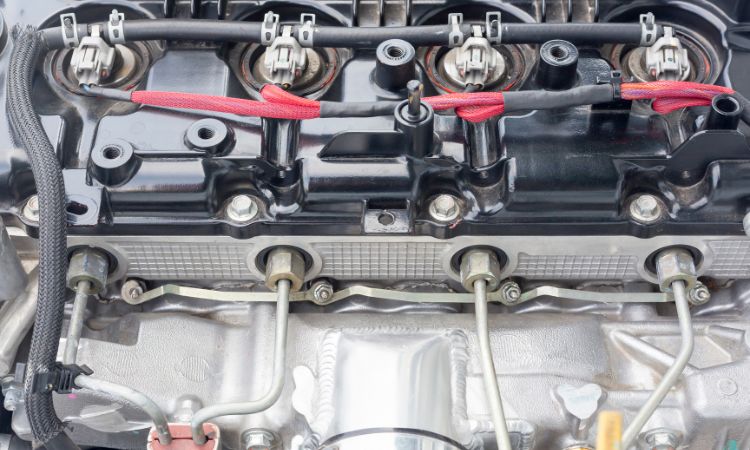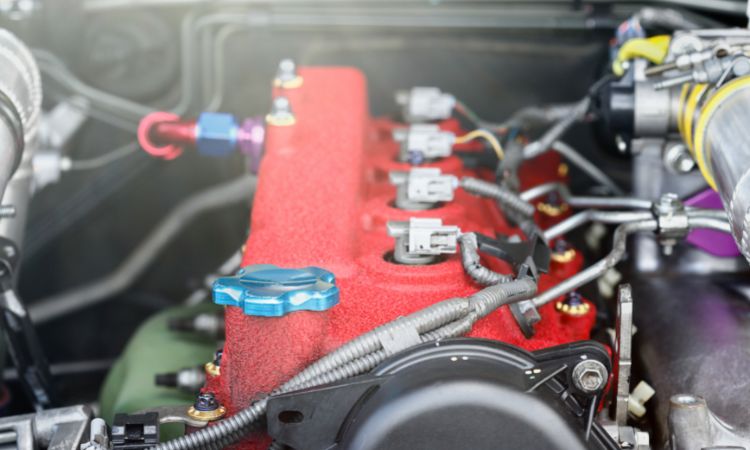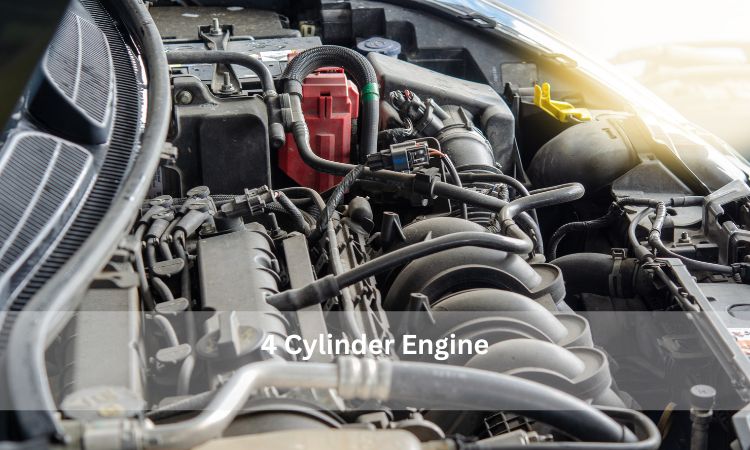How Long Does A 4 Cylinder Engine Last
Are you wondering how long a 4 cylinder engine can last? If so, this blog article is for you! Here we’ll explore the factors that impact the longevity of a 4 cylinder engine and provide tips on how to maximize its lifespan. We’ll also discuss common causes of failure and when it’s time to replace your engine.
When it comes to vehicle engines, 4-cylinder models are a popular choice for many drivers. They offer good fuel economy and performance at an affordable price point. But how long can you expect your 4-cylinder engine to last?
The answer depends on several factors, including the make and model of your car as well as how well you maintain it. Generally speaking, most 4-cylinder engines should last between 150,000 and 200,000 miles when properly cared for. However, some may go even longer if they receive regular maintenance such as oil changes and tune-ups throughout their lifespan.
One way to ensure that your engine lasts longer is by following the manufacturer’s recommended maintenance schedule. This will help keep all of its components in top condition so that they don’t wear out prematurely or cause any major problems down the line. Additionally, using high-quality parts whenever possible can also help extend the life of your engine since these tend to be more reliable than cheaper alternatives over time.
It’s also important to pay attention to warning signs that something might be wrong with your engine before it gets too serious – things like strange noises or vibrations coming from under the hood could indicate a problem with one of its components which should be addressed right away in order prevent further damage from occurring later on down the road (literally).
Finally, driving habits play an important role in determining how long a 4 cylinder engine will last as well; try not to push it too hard by revving up excessively or taking sharp turns at high speeds since this can put extra strain on its internal parts which could lead them wearing out faster than normal over time if done regularly enough.
How to Maximize the Lifespan of Your 4 Cylinder Engine

A 4 cylinder engine is a powerful and reliable machine that can last for many years if properly maintained. To maximize the lifespan of your 4 cylinder engine, there are several steps you should take to ensure it runs smoothly and efficiently.
First, make sure you regularly check the oil level in your vehicle’s engine. Low levels of oil can cause serious damage to an engine over time as it won’t be able to lubricate all its components correctly. You should also change the oil every 5,000 miles or so – this will help keep dirt and debris out of the system while also providing fresh lubrication for all parts inside the motor.
Second, use high-quality fuel whenever possible when filling up your tank; low-grade fuels contain more impurities which can build up in an engine over time leading to decreased performance or even complete failure down the line.
Click to Read: Subwoofer in a Car
What Are the Common Causes of 4 Cylinder Engine Failure?
Four-cylinder engines are one of the most popular engine types used in cars and light trucks today. They provide a great balance between power, fuel economy, and reliability. However, like any other engine type, 4 cylinder engines can suffer from failure due to various causes. The most common causes of 4 cylinder engine failure include inadequate lubrication, overheating issues caused by lack of coolant or clogged cooling systems, worn-out piston rings or valves that cause oil leaks, and excessive wear on internal components such as bearings and crankshafts.
Inadequate lubrication is one of the primary reasons for 4-cylinder engine failures because it leads to increased friction between moving parts which can result in severe damage over time if not addressed quickly enough. To prevent this from happening you should always make sure your vehicle has an adequate amount of clean motor oil with the correct viscosity for its specific application at all times.
Additionally, you should also check your oil filter regularly to ensure it is free from dirt particles that could potentially block vital passages within the system leading to further problems down the line.
Is Regular Maintenance Key to Prolonging a 4 Cylinder Engine’s Life?

Regular maintenance is essential for prolonging the life of any engine, but it’s especially important when it comes to a 4 cylinder engine. These engines are known for their fuel efficiency and performance, but they can also be prone to wear and tear if not properly maintained. Regular maintenance helps ensure that your 4 cylinder engine runs smoothly and efficiently while reducing the risk of costly repairs down the line.
To keep your 4 cylinder engine running in top condition, there are several key steps you should take on a regular basis: change the oil regularly (every 3-5 thousand miles), check all fluid levels monthly, replace air filters every 12 months or as needed, inspect spark plugs every 30k miles or so; use high-quality gasoline; get regular tune-ups; and perform other routine inspections such as checking hoses and belts for signs of damage or wear.
Additionally, make sure to follow the manufacturer’s recommendations regarding service intervals – this will help prevent major problems from occurring before they become too serious.
What Factors Impact the Longevity of a 4 Cylinder Engine?
The longevity of a 4 cylinder engine is determined by many factors, from the quality of its components to how it is maintained. The most important factor in determining the life span of an engine is its maintenance schedule. Regular oil changes and tune-ups are essential for keeping your engine running smoothly and efficiently for as long as possible.
Another major factor that impacts the longevity of a 4 cylinder engine is fuel efficiency. If you use low-grade gasoline or diesel, it can cause damage to your vehicle’s internal components over time, reducing its lifespan significantly. To ensure maximum performance and reliability from your vehicle’s powertrain, always use high-quality fuels with appropriate octane ratings for optimal results.
Finally, environmental conditions also play an important role when it comes to maintaining the health of a 4 cylinder engine over time. Excessive heat or cold temperatures can cause wear on internal parts more quickly than normal operating temperatures would allow; therefore regular inspections should be done in order to identify any potential issues before they become serious problems down the line.

How Can You Tell When It’s Time for a New 4 Cylinder Engine?
When it comes to the performance of your 4 cylinder engine, there are a few tell-tale signs that can indicate when it’s time for an upgrade. The most obvious sign is if you’re noticing a decrease in power or acceleration. If you’re having difficulty getting up hills or passing other cars on the highway, then it could be time to invest in a new engine.
Another indication that your 4 cylinder engine needs replacing is if you’ve noticed increased fuel consumption and emissions levels. If your car has become less efficient than usual, then this could be due to wear and tear on the internal components of your current motor. Replacing these parts with newer ones will help restore its efficiency and reduce emissions levels too.

